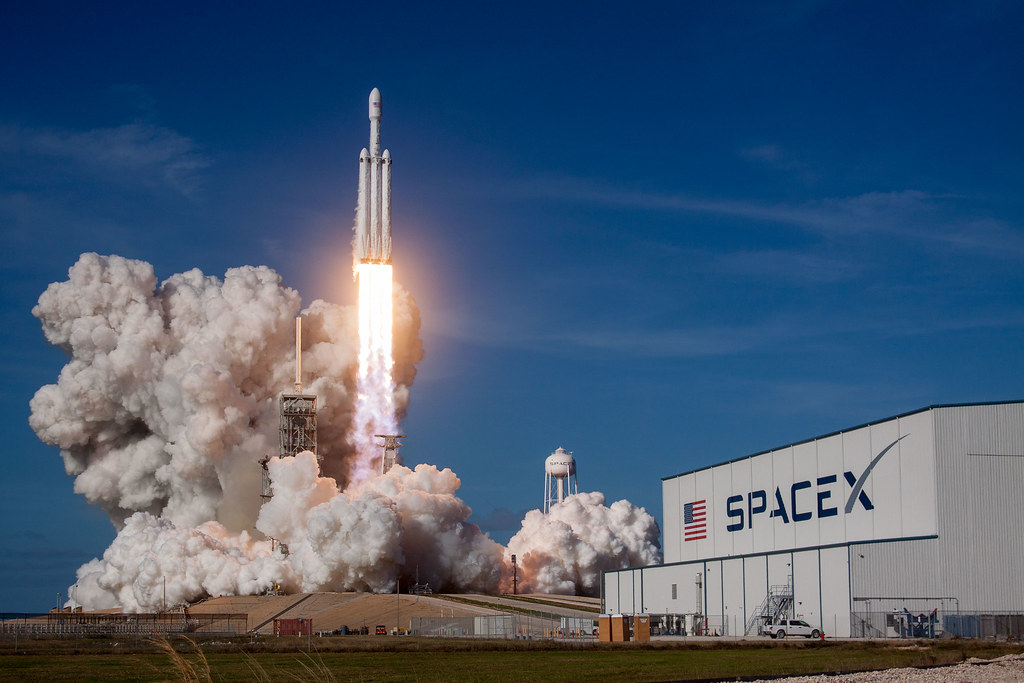Science News Roundup: SpaceX capsule with world's first all-civilian orbital crew set for splashdown; Study rewrites understanding of modern Japan's genetic ancestry and more
Pilots repeat the maneuver about 15 times during the flight.On Wednesday, a SpaceX rocket blasted off from Florida carrying billionaire e-commerce executive Jared Isaacman and three other people he chose in the first all-tourist crew to orbit Earth.

Following is a summary of current science news briefs.
Chinese astronauts return after 90-day mission to space station
Three Chinese astronauts returned to earth on Friday after a 90-day visit to an unfinished space station in the country's first crewed mission since 2016. In a small return capsule, the three men - Nie Haisheng, Liu Boming and Tang Hongbo - landed safely in the autonomous region of Inner Mongolia in the north of China at 1:34 p.m. (0534 GMT), state media reported.
Floating like an astronaut for a day
As billionaire space enthusiasts blast off into space, the best most people can do is watch with envy. There is another way, however, to feel what it would be like to float in space like an astronaut at a mere $7,500 per person for a 90-minute trip. The Zero Gravity Experience allows adventurers to flip, float, somersault and hang upside-down in the hollowed-out cabin of a Boeing 727, said Zero G Corporation CEO Matt Gohd. When the modified G-Force One plane gets to an altitude of about 24,000 feet (7,300m), the pilots start to climb, and then push the plane over the top of a parabolic arc. That leaves passengers in free fall - they feel weightless for 20 to 30 seconds until the plane descends back to 24,000 feet. Pilots repeat the maneuver about 15 times during the flight.On Wednesday, a SpaceX rocket blasted off from Florida carrying billionaire e-commerce executive Jared Isaacman and three other people he chose in the first all-tourist crew to orbit Earth. It marked the debut flight of SpaceX owner Elon Musk's new orbital tourism business. Isaacman paid an undisclosed sum to fellow billionaire Musk for the flight; Time magazine has put the ticket price for all four seats at $200 million. Rival companies Virgin Galactic Holdings Inc and Blue Origin inaugurated their own private-astronaut services this summer, but those suborbital flights lasted just minutes. Zero G has been offering flights since 2004 and counts Virgin founder Richard Branson, Musk, astronaut Buzz Aldrin and physicist Stephen Hawking among its customers. This year, Gohd said there would be 65 to 70 flights. Amid the increased interest in space travel, Gohd expects that to rise to about 100 flights next year. "When people go up on the flight ... everybody's giggling," said Gohd about the feeling of weightlessness. "They've never felt anything like this. And they're like children again."
A ukulele in space? Inspiration4 crew shows a playful side in orbit
A 42-year-old data engineer on the first all-civilian astronaut crew to reach orbit made some spaceflight history on Friday, with a zero-gravity ukulele performance in a SpaceX capsule hundreds of miles above Earth's surface. Chris Sembroski, a Lockheed Martin employee and U.S. Air Force veteran, strummed a few chords for home-bound viewers during a 10-minute show-and-tell session by the four-member Inspiration4 team as they flew at about 17,500 miles per hour (28,000 km per hour) over Europe.
As workers age, robots take on more jobs -study
It turns out robots are taking over jobs fastest around the world in places where their human counterparts are aging the most rapidly. That is the conclusion of a new study that looked at demographic and industry-level data in 60 countries and found a powerful link between aging workforces - defined as the ratio of workers aged 56 and older, compared with those aged 21 to 55 - and robot use, focusing in particular on industrial settings.
SpaceX capsule with world's first all-civilian orbital crew set for splashdown
The quartet of newly minted citizen astronauts comprising the SpaceX Inspiration4 mission were due to splash down in the Atlantic off Florida on Saturday, completing a three-day flight of the first all-civilian crew ever launched into Earth orbit. To prepare for atmospheric re-entry and return to Earth, the SpaceX Crew Dragon vehicle completed two rocket "burns" on Friday to lower its altitude and line up the capsule's trajectory with the targeted landing site.
Study rewrites understanding of modern Japan's genetic ancestry
An analysis of ancient DNA is transforming the understanding of the genetic ancestry of Japan's modern-day population, identifying a crucial contribution from people who arrived about 1,700 years ago and helped revolutionize Japanese culture. Research published on Friday showed that the people of Japan bear genetic signatures from three ancient populations rather than just two as previously thought - a more complex ancestry for the archipelago nation of roughly 125 million.
First all-civilian crew launched to orbit aboard SpaceX rocket ship
A billionaire e-commerce executive and three less-wealthy private citizens chosen to join him blasted off from Florida on Wednesday aboard a SpaceX rocket ship and soared into orbit, the first all-civilian crew ever to circle the Earth from space. The quartet of amateur astronauts, led by the American founder and chief executive of financial services firm Shift4 Payments Inc, Jared Isaacman, lifted off just before sunset from the Kennedy Space Center in Cape Canaveral.
Moroccan cave yields oldest clues about advent of human clothing
People may take the necessity and existence of clothing for granted, from shirts to pants to dresses, coats, skirts, socks, underwear, bow ties, top hats, togas, kilts and bikinis. But it all had to start somewhere. Scientists on Thursday said artifacts unearthed in a cave in Morocco dating back as far as 120,000 years ago indicate that humans were making specialized bone tools, skinning animals and then using tools to process these skins for fur and leather.
(This story has not been edited by Devdiscourse staff and is auto-generated from a syndicated feed.)










